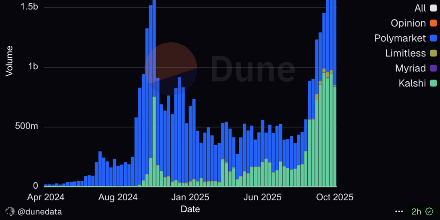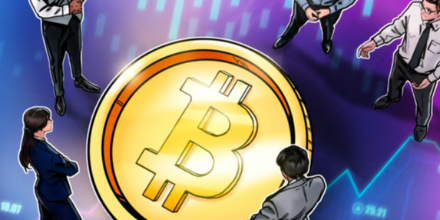Metaplanet's $1.2B Bitcoin Treasury Expansion: A Strategic Hedge Against Yen Weakness and Inflation
- Metaplanet raises $1.2B to expand Bitcoin treasury, hedging against yen depreciation and Japan's 4% inflation. - Aims to hold 210,000 BTC by 2027, becoming Asia's largest holder and fourth globally. - Generates income via covered call options, boosting Q2 2025 sales to 1.9B yen. - Regulatory reforms and institutional confidence boost its FTSE Russell index inclusion. - Strategy highlights Bitcoin's role as a corporate reserve asset amid fiat instability.
In a world where fiat currencies face relentless inflationary pressures and central banks struggle to maintain stability, corporate treasuries are increasingly turning to Bitcoin as a macroeconomic hedge. Japan, a nation grappling with decades of deflation, a depreciating yen, and a debt-to-GDP ratio exceeding 260%, has become an unlikely epicenter of this shift. At the forefront is Metaplanet, a once-obscure investment firm now redefining its identity as a Bitcoin-first enterprise. The company's recent $1.2 billion capital-raising initiative—allocated to expand its Bitcoin treasury and monetize its holdings—offers a compelling case study in how corporate Bitcoin adoption can counteract currency erosion and create long-term value.
The Macroeconomic Imperative: Why Japan Needs Bitcoin
Japan's economic challenges are well-documented. The yen has lost over 30% of its value against the U.S. dollar since 2012, while the Bank of Japan's ultra-loose monetary policy has kept real interest rates negative for years. Meanwhile, the country's public debt looms as a $13 trillion overhang, with inflation now creeping toward 4%—a level not seen in decades. For corporations, holding yen-denominated assets has become a losing proposition.
Bitcoin, with its fixed supply of 21 million coins, offers a stark contrast. Its scarcity model inherently resists inflation, making it a natural counterweight to fiat depreciation. For Metaplanet, this isn't just theory—it's a calculated strategy. By allocating $835 million of its recent capital raise to Bitcoin purchases, the company is effectively hedging its balance sheet against the yen's volatility. As of August 2025, Metaplanet already holds 18,991 BTC (worth $2.1 billion), positioning itself as the largest Bitcoin holder in Asia and the fourth-largest globally.
The “555 Million Plan”: A Blueprint for Bitcoin Dominance
Metaplanet's ambition extends far beyond a one-time capital raise. The company's “555 Million Plan” aims to accumulate over 210,000 BTC by 2027—more than 1% of Bitcoin's total supply. This target is not arbitrary. By securing such a significant share of the Bitcoin network, Metaplanet is betting on the cryptocurrency's long-term value proposition as a store of value and a global reserve asset.
The strategy is twofold: asset accumulation and structured yield generation. While $835 million will go toward buying Bitcoin, $45 million will fund the company's “Bitcoin Income Business,” which sells covered call options on its holdings. This approach generates recurring revenue without liquidating the underlying asset—a critical advantage in a low-yield environment. In Q2 2025 alone, this segment contributed 1.9 billion yen in sales, demonstrating its viability.
Institutional Confidence and Regulatory Tailwinds
The market has taken notice. Following the capital-raising announcement, Metaplanet's shares surged 6%, and the company was upgraded to mid-cap status in the FTSE Russell indices, joining the FTSE Japan and All-World Indexes. This inclusion signals growing institutional confidence in its Bitcoin-driven model.
Japan's regulatory environment is also aligning with this trend. The government's push to classify digital assets as financial products, coupled with proposed tax reforms that cap crypto capital gains at 20%, is creating a more favorable ecosystem for corporate adoption. Metaplanet's CEO, Simon Gerovich—a former Goldman Sachs derivatives trader—has positioned the company as a bridge between traditional finance and the crypto world, leveraging his expertise to navigate regulatory and market complexities.
Corporate Bitcoin Adoption: A Global Trend
Metaplanet is not alone. As of August 2025, non-mining companies globally hold nearly 841,000 BTC, valued at $93 billion. Firms like MicroStrategy, Tesla , and Square have long championed Bitcoin as a treasury asset, but Metaplanet's aggressive acquisition pace and innovative monetization strategies set it apart.
The key differentiator is Metaplanet's focus on structured income generation. While many companies treat Bitcoin as a speculative asset, Metaplanet is actively engineering yield through options strategies—a model that could become a blueprint for others in the sector.
Investment Implications and Risks
For investors, Metaplanet's expansion raises critical questions. Is this a speculative bet on Bitcoin's price, or a sustainable corporate strategy? The answer lies in the balance between Bitcoin's volatility and the company's disciplined capital allocation.
On the upside, Metaplanet's Bitcoin treasury acts as a long-term value anchor. If Bitcoin's price continues to outpace inflation—a scenario supported by its deflationary supply model—the company's holdings could appreciate significantly. Additionally, the covered call strategy provides a buffer against short-term price swings, generating income even in sideways markets.
However, risks remain. Bitcoin's price is notoriously volatile, and a sharp correction could erode the value of Metaplanet's treasury. Moreover, regulatory shifts in Japan or globally could disrupt the company's operations. Investors must also consider the dilution risk from the 555 million new share issuance, which increases the total outstanding shares by 77%.
The Long Game: Bitcoin as a Corporate Reserve Asset
Metaplanet's journey reflects a broader paradigm shift. In a world where fiat currencies are increasingly unreliable, Bitcoin is emerging as a corporate reserve asset—a digital alternative to gold. For companies operating in inflationary environments like Japan, this shift is not just strategic; it's existential.
As Metaplanet's CEO Gerovich has stated, the company is “redefining corporate value through digital assets.” Whether this vision succeeds will depend on Bitcoin's ability to maintain its value proposition against the backdrop of macroeconomic uncertainty. For now, the market's enthusiastic response suggests that investors are willing to bet on this future.
Final Thoughts: A Hedge Worth Considering
For investors seeking exposure to Bitcoin's macroeconomic resilience without direct ownership, Metaplanet offers an intriguing vehicle. Its dual strategy of asset accumulation and yield generation, combined with Japan's favorable regulatory trajectory, positions it as a unique player in the corporate crypto space.
However, due diligence is essential. Investors should monitor Bitcoin's price trends, Metaplanet's share performance, and Japan's regulatory developments. Diversification remains key, but in a world of depreciating fiat, bold moves like Metaplanet's may prove to be the most prudent.
In the end, Metaplanet's $1.2 billion bet is more than a corporate play—it's a statement about the future of value in an era of monetary instability. Whether you're a Bitcoin maximalist or a cautious institutional investor, the company's strategy demands attention.
Disclaimer: The content of this article solely reflects the author's opinion and does not represent the platform in any capacity. This article is not intended to serve as a reference for making investment decisions.
You may also like
Crypto Rebound Alert: What’s Next for Bitcoin, Ethereum, XRP and Solana Prices?
OracleX Global Public Beta: Restructuring Prediction Market Incentive Mechanisms with "Proof of Behavior Contribution"
OracleX is a decentralized prediction platform based on the POC protocol. It addresses pain points in the prediction market through a dual-token model and a contribution reward mechanism, aiming to build a collective intelligence decision-making ecosystem. Summary generated by Mars AI The content of this summary is produced by the Mars AI model, and its accuracy and completeness are still being iteratively improved.

Bitcoin is not "digital gold"—it is the global base currency of the AI era
The article refutes the argument that bitcoin will be replaced, highlighting bitcoin's unique value as a protocol layer, including its network effects, immutability, and potential as a global settlement layer. It also explores new opportunities for bitcoin in the AI era. Summary generated by Mars AI. This summary was produced by the Mars AI model, and the accuracy and completeness of its content are still being iteratively improved.

Bitcoin 2022 bear market correlation hits 98% as ETFs add $220M
